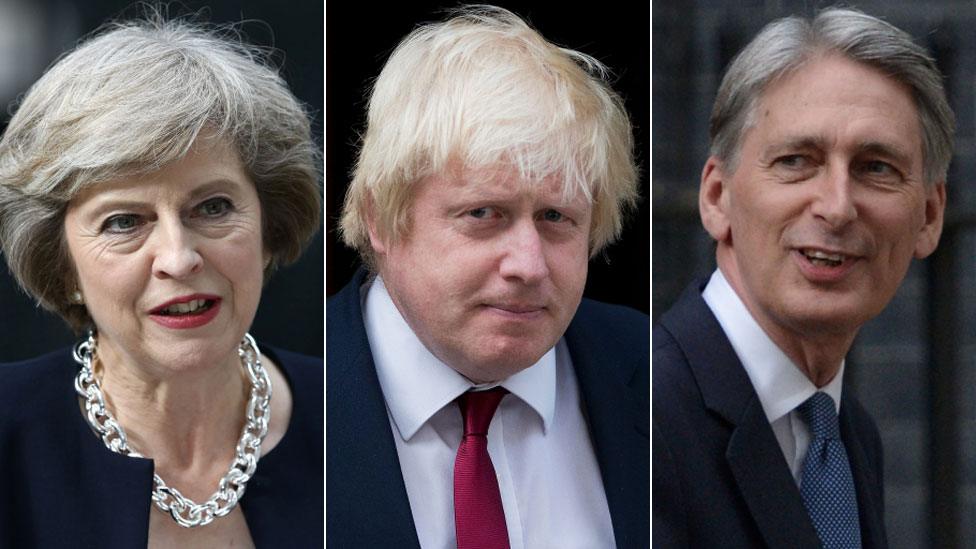Defining a role for Boris
- Published
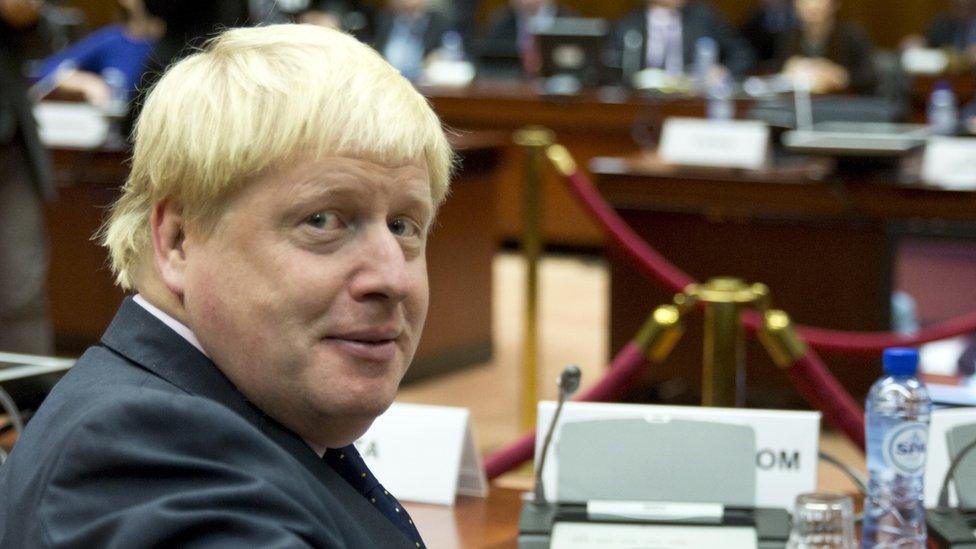
Boris Johnson is one of those few politicians whose notoriety gives their utterances a wider audience than Westminster.
It is why he was such an effective advocate for Leave during the referendum. And it is why the prime minister will use him to sell the Brexit deal when eventually it is struck.
So it will have come as no surprise to Mr Johnson to have attracted the attention this week of the actor Ewan McGregor - even if he might not have appreciated why.
The star of Trainspotting and Star Wars, who has one million Twitter followers, used his social media account to criticise the foreign secretary for offering "an impossible Brexit vision".
The cause of Mr McGregor's ire was Mr Johnson's interview with a Czech newspaper in which he suggested the UK might leave the EU customs union. This might not sound too controversial until you realise that doing that after Brexit is not actually government policy.
Downing Street has deliberately kept its options open, leading some MPs to think that staying in the customs union will be part of a transitional period before full Brexit. Mr Johnson also claimed the free movement of people was not a fundamental EU freedom, even though it was set out in the Treaty of Rome.
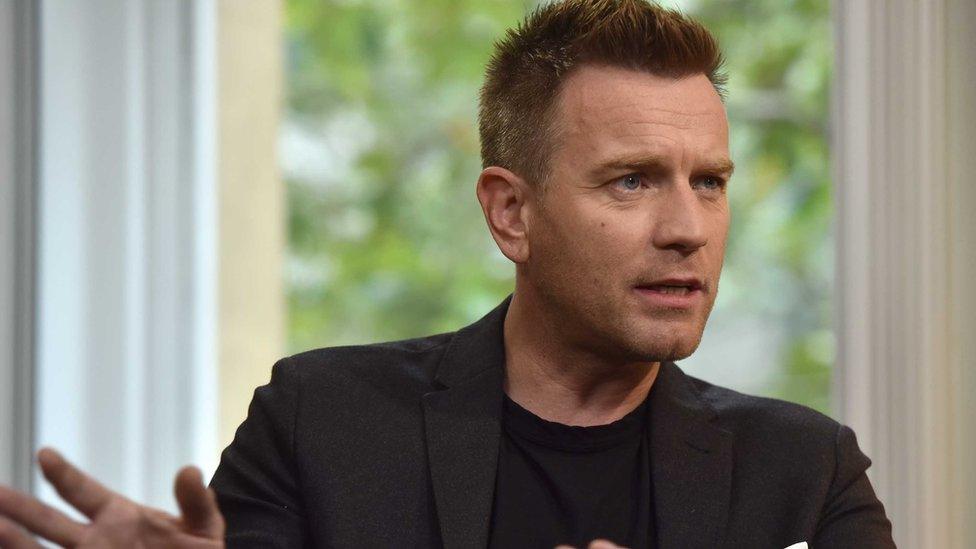
The actor Ewan McGregor says Mr Johnson has "an impossible Brexit vision"
To some Conservative MPs, this is Boris being Boris: speaking truth clumsily and causing unnecessary offence. To others, it is Mr Johnson deliberately pushing the boundaries, trying to nudge Downing Street down a path that he and other Brexiteers wish to travel.
Either way, the interview gave the prime minister's opponents a big stick with which to beat her at question time in the House of Commons. One MP said that Theresa May will not have liked that and pointed out that at no time did she refer to Mr Johnson or praise him during her replies.
But one Downing Street source said: "If you were to sit down with the PM tonight for a whisky, she would not tell you that Boris Johnson is a problem. Her big problem is getting Whitehall to deliver what she wants."
There are some around the prime minister, however, who do not mind Mr Johnson taking some flak for the complexities and contradictions that leaving the EU will entail. This week the Dutch Finance Minister, Jeroen Dijsselbloem, told Newsnight that Mr Johnson was saying things that are "intellectually impossible".
The Italian economic development minister Carlo Calenda accused Mr Johnson of being "insulting" for suggesting that Italy should support a trade deal with the UK to avoid losing sales in Prosecco sparkling wine. One source said: "Boris is like a cut-off, absorbing some of the noise that would otherwise come our way."

Mr Johnson has been entangled in a war of words with an Italian minister over Prosecco
That may be but it might still a problem for No 10 if the foreign secretary is unnecessarily picking fights with the EU when he should be building bridges. Some EU diplomats say his chummy way of addressing them in a few mangled words of their language can be patronising rather than engaging.
Few think he has much influence over the Brexit process. He has also upset some of his counterparts, the most important being Frank-Walter Steinmeier of Germany. This has not gone unnoticed in Whitehall.
Other government officials are more positive. They say Mr Johnson is popular in the Foreign Office in the way his predecessors were not. The junior staff like the way he says hello to them. The senior staff empathise with his curious intellect and linguistic hunger. And they like the way he takes his briefs seriously and masters the detail quickly.
The problem, some say, is that Mr Johnson is bored. He is being kept on a tight leash by Downing Street. No big interviews allowed, no big speeches planned, just endless "grip and grins" with visiting politicians and "get to know you" goodwill trips abroad. There are only so many times you can say that Britain will be engaged with the world post-Brexit.
So the hunt is on for a role for the foreign secretary, a focus for his energy. One idea doing the rounds is for Mr Johnson to throw himself into shaping the thinking, as much as he can, of the incoming Trump administration.
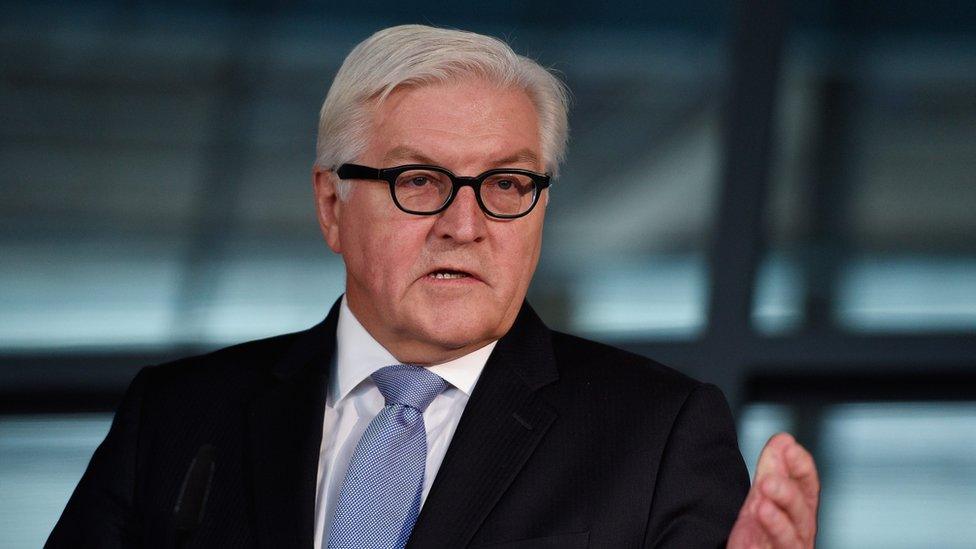
German Foreign Minister Frank-Walter Steinmeier was reportedly "not overly delighted" with Mr Johnson's decision to back Brexit
There is, the argument goes, a vacuum in much of the president-elect's foreign policy and it will be up others to fill that gap.
Others doubt the foreign secretary has been in his post long enough to have a settled world view that he can pass on to Mr Trump. What is Mr Johnson's real strategic view, they ask, on Russia, the Middle East and global trade?
Yet, astonishing as it may seem, in a short while Mr Johnson will be one of Europe's longer-serving foreign secretaries. By the end of next May, France, Germany and Italy will almost certainly have new foreign ministers who will be working alongside an equally new American secretary of state.
Despite that, some officials note that Mr Johnson has yet to be tested by a big foreign policy crisis, such as the Russian incursion into Ukraine. Will he have the clout to get Britain into the room, to shape the policy, to impose his will on a fast moving event?
That, they say, will be the time to judge the foreign secretary rather than blaming him personally for the failure of the whole government thus far to agree a strategy on Brexit.
- Published16 November 2016
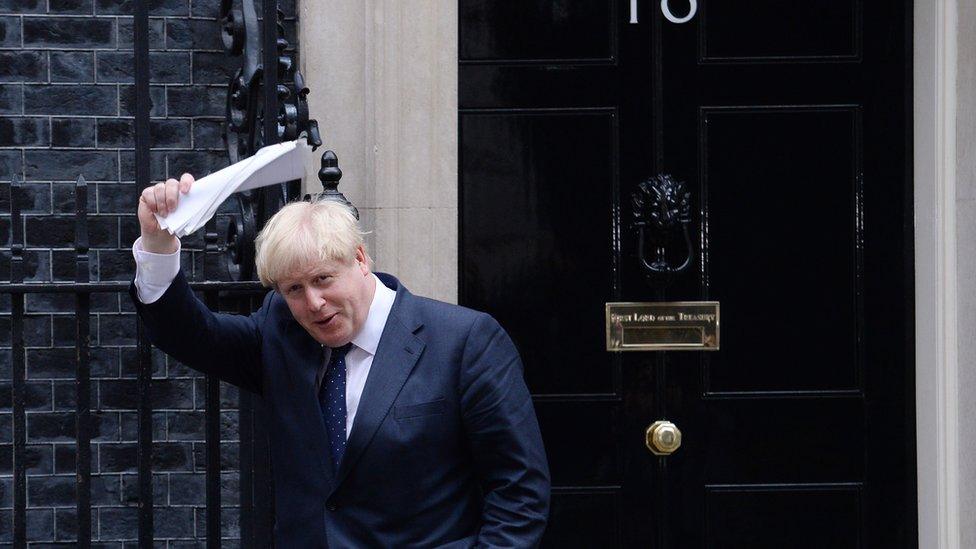
- Published30 December 2020

- Published10 November 2016
- Published13 July 2016
